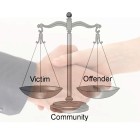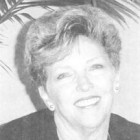ABA Meets in Atlanta in February, Targets Juvenile Court Issues
|
When the American Bar Association meets in Atlanta the hot topics will include restorative justice and alternatives to detention for kids. The Midyear meeting runs February 9 – 14 at the Marriott Marquis. One event takes place at Frank McClarin High School in College Park, where judges and lawyers will talk to 300 high school students about fair and impartial courts. They’ll use the assault charge against MTV’s Teen Mom to launch the discussion. Sharon Hill of Georgia Appleseed and Judge Steve Teske from Clayton County Juvenile Court will talk about new initiatives to keep kids in school and out of court. The ABA will consider two resolutions related to at-risk kids.

